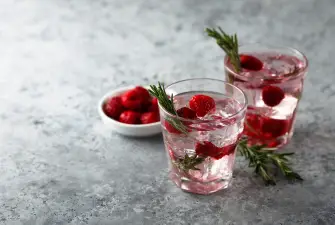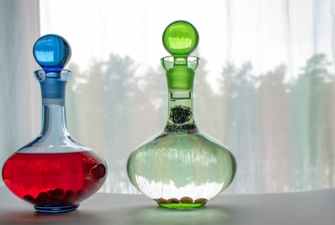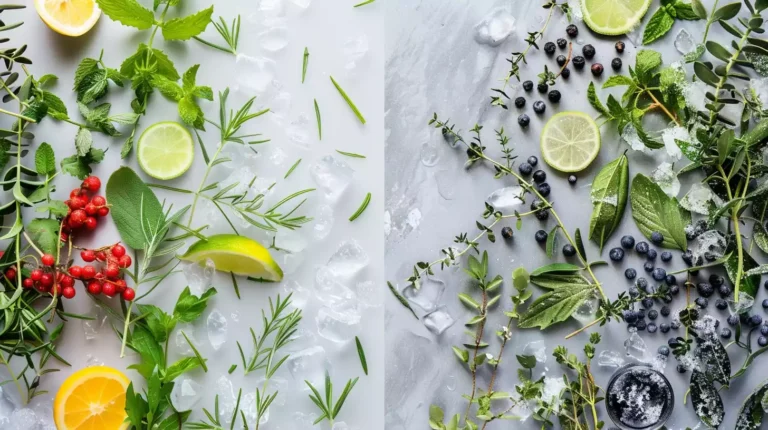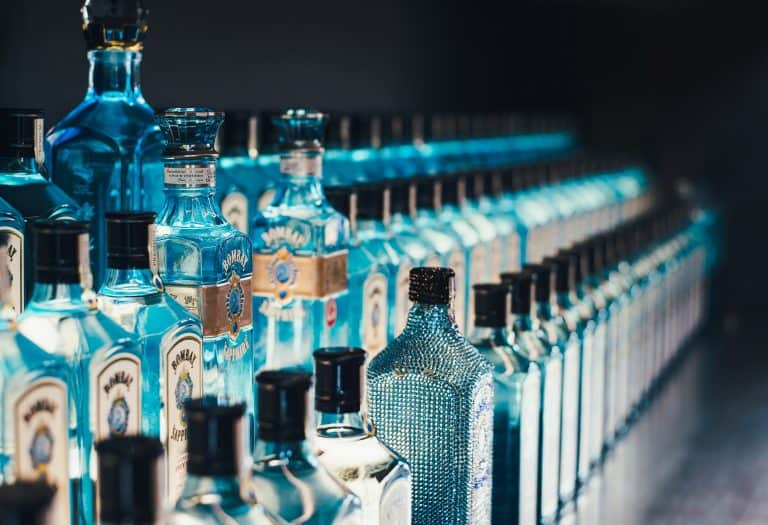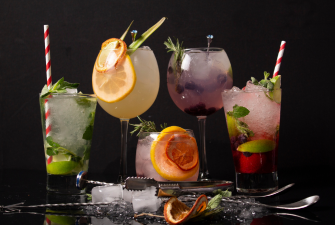How Long Does Gin Last In Opened And Unopened Bottles?
Most of us have various bottles of random alcohols we bought on a whim or bottles of gin we were gifted. Those bottles make their way to the back of the shelf or liquor cabinet until we have a sort out and re-discover them. Opened or unopened, before giving the drink a taste, you may wonder, how long does gin last?
Opened and unopened bottles of gin will last almost indefinitely, at the very least several years. Provided they were stored correctly out of the sun and heat, the integrity will remain unchanged for a long while. Unopened bottles generally last longer than opened ones.
Chances are, your long-forgotten bottles of gin are absolutely fine to drink as they keep so well. Certain things like storage conditions will have a huge impact on the shelf life and the continued integrity of your gin.
If stored incorrectly or simply left for too long there will likely be taste, smell, and even color changes.
The Shelf Life Of Unopened Bottles Of Gin
I don’t know about you, but gin rarely lasts long enough in my household to have to worry about the shelf life! However, if you have found a hidden, unopened bottle at the back of a cupboard, you might be worried about opening it – but fear not!
Unopened, gin will last almost indefinitely. Its 37.5% alcohol by volume (ABV) percentage is such that it cannot actually go bad in the way that other foods and drinks do.
Provided the bottle is stored in the right conditions, it will retain its flavor and freshness, even if you open it several years after buying it.
You might have noticed that there is no expiry or best before date on your bottle either. That’s because, legally, companies don’t have to print them.
If the airtight seal on the bottle cap is unbroken, then your alcohol is protected and there really is no set expiry date as it can remain fresh and tasty for years to come. What a relief!
The Shelf Life Of Opened Bottles Of Gin
We know that the shelf life for unopened bottles of gin is almost indefinite, which stops us from worrying about consuming off-tasting gin!
Opened bottles are a slightly different story; there is a bit more of a timeframe with opened bottles of gin. But don’t worry, you don’t have to drink the entire bottle in one go on the day you open it. Just be mindful about how long (roughly) it’s been open.
It is recommended to drink gin within 1 year of the bottle being opened. This is because the integrity of the molecules and therefore the taste and quality of the gin will decline as time goes on.
As it’s exposed to oxygen, the drink can evaporate, oxidize, and the taste can change for the worse. It won’t hurt you or make you sick, but it may become less enjoyable over time.
We now know the rough shelf lives of opened and unopened gin. However, there are many other questions about what happens to the gin if it’s been opened for a long time; how does it taste, how do we store it, and prevent that from happening? Let’s start tackling those questions, shall we?
What Happens To Gin Over Time?
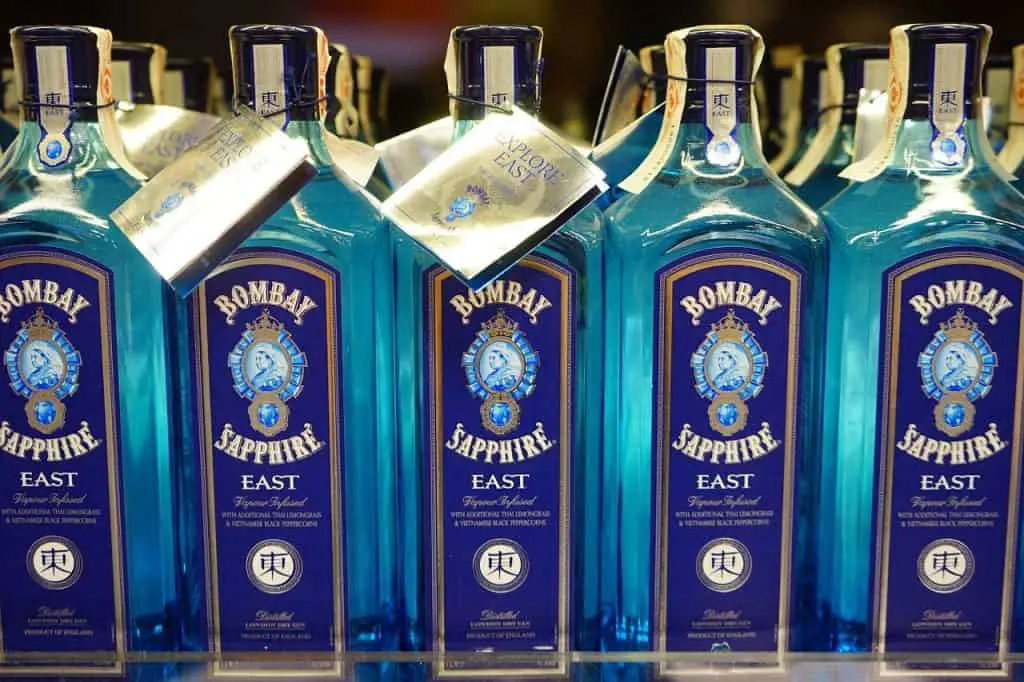
We know you should drink a bottle of gin within 1 year of it being opened, but we also know that it won’t make you unwell if you do drink it… So, without an expiry date and there is no chance it could hurt you, why is it recommended that we drink it within 1 year?
When gin starts to age, its flavor will fade away. The botanicals will start to evaporate, taking away their signature taste. When this happens, the drink will become more like a neutral grain spirit than an actual gin, making for a less enjoyable tasting experience.
Let’s take a look in a bit more detail at exactly what happens to gin if it’s left open over a long period of time.
Does Gin Go Bad?
This is always something that sits at the back of our minds whenever we open any food or drink product and leave it open for a little while. The niggling voice starts to make you wonder and worry that it will either make you sick or simply taste too bad to eat or drink.
Thankfully, when it comes to gin, there is a clear answer to this question.
Gin doesn’t ‘go off’ or expire in the same way that other perishable food does. Gin won’t go bad because of the alcohol content; as alcohol is a preservative, it prevents any bacteria from growing in there. Naturally, an alcoholic drink is preserved by itself, ensuring it won’t spoil over time.
This is why you’ll never find an expiry or best before date on a bottle. Companies legally don’t have to put one on as there is no real set expiry date, and it can’t make you sick anyway, so why worry people with expiry dates if gin doesn’t expire?
However, something to bear in mind is that alcohol oxidizes, altering the taste, smell, and even color of the drink over time.
Can Gin Evaporate?
We know that oxidation occurs, which causes changes to taste, color, and smell. However, if a bottle is left open long enough, can all the liquid just evaporate and disappear?
Gin can evaporate over time. No matter how tightly you screen that cap back on, it won’t be airtight. This means the gin and water can evaporate and escape through the tiny crevices in the bottle cap. This process takes time and will be quicker if the bottle is left in a warm room or in direct sunlight.
Unfortunately, this also means that over time, it can reduce the alcohol content of the gin, making it weaker, which in turn disrupts the overall taste. If you want to know more about the evaporation of gin and if it can happen in unopened bottles, take a look at this article.
Can Gin Get Better With Age?
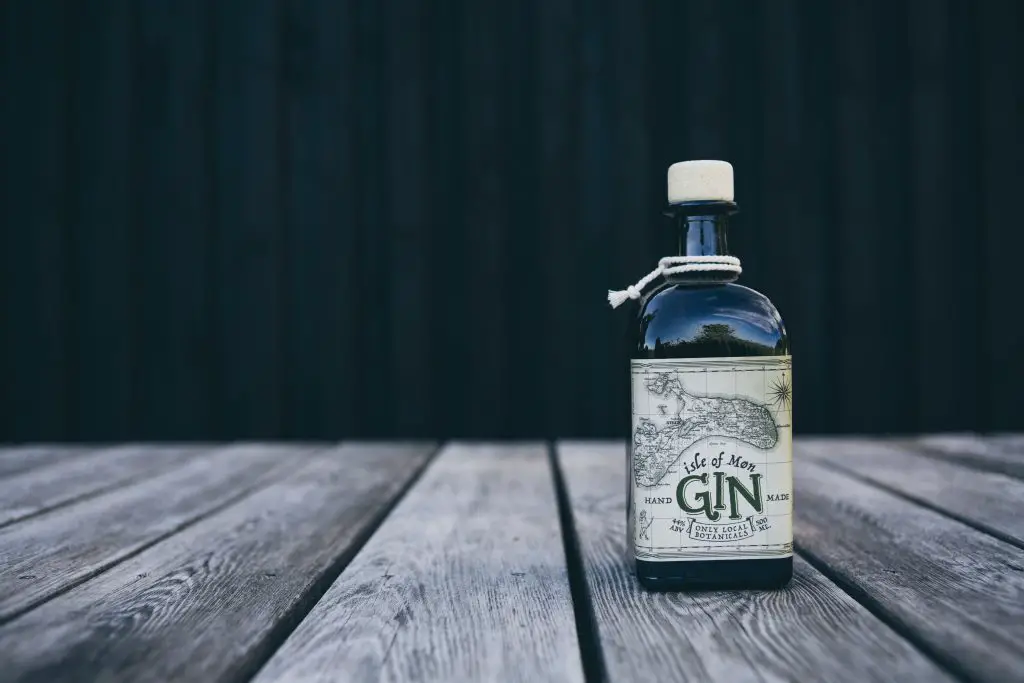
So, there’s no expiry date and it won’t make us ill… it does make us wonder if that means it will get better with age? We know certain whiskeys, wines, and other drinks get better with age, so does this apply to gin?
Gin won’t get better with age, as it’s distilled in glass bottles. Nothing is giving off its flavors except for the botanicals used. And since these botanicals can be quite volatile, you don’t want to age gin yourself, as the botanicals will start to evaporate, taking away all the flavor. The taste it has at bottling (unless it’s opened for too long) won’t improve.
It won’t get a richer, deeper flavor or more enjoyable over time as you would come to expect with other aged alcohols. We’ll leave the maturing to the whiskeys and wines!
Why Does The Taste Of Gin Get Worse Over Time
As gin doesn’t age or get better with time, it begs the question; what happens to the taste?
If gin is left open for on average more than 1 year, the taste can begin to deteriorate and fade. This is because the airtight seal around the bottle cap has been broken, allowing oxygen molecules to get inside the bottle.
This then causes oxidation to begin, which changes the taste of the alcohol, making it duller and less flavorsome.
There are, however, a few benefits to having an older, duller-tasting gin around the house, so don’t be so quick to throw it away. There are times you may not want to use your expensive, good-quality gin and the duller flavor won’t be too noticeable in the drink you’re serving:
- The flavor of gin is not necessarily too potent in certain cocktails, especially ones with a strong, fruity flavor.
If you’re making a basic cocktail at home (especially if the recipient isn’t a fan of strong alcohol flavors), then a less flavorsome gin really won’t have a huge impact on the taste. (Although, if your friend is a gin connoisseur, then crack open the expensive stuff!) - If you fancy a quick shot of gin to liven up your evening, you don’t really want to use a premium drink that will be gone in one mouthful.
Cheap (or old) alcohols are best used for shots as they’re gone so quickly… plus, chances are, you would already have had a fair few drinks by that point, so I doubt anyone will notice!
There is always a way to use up any bits and pieces you have lying around the house, and that includes half-drunk bottles of gin!
How To Tell If Gin Has Gone Off
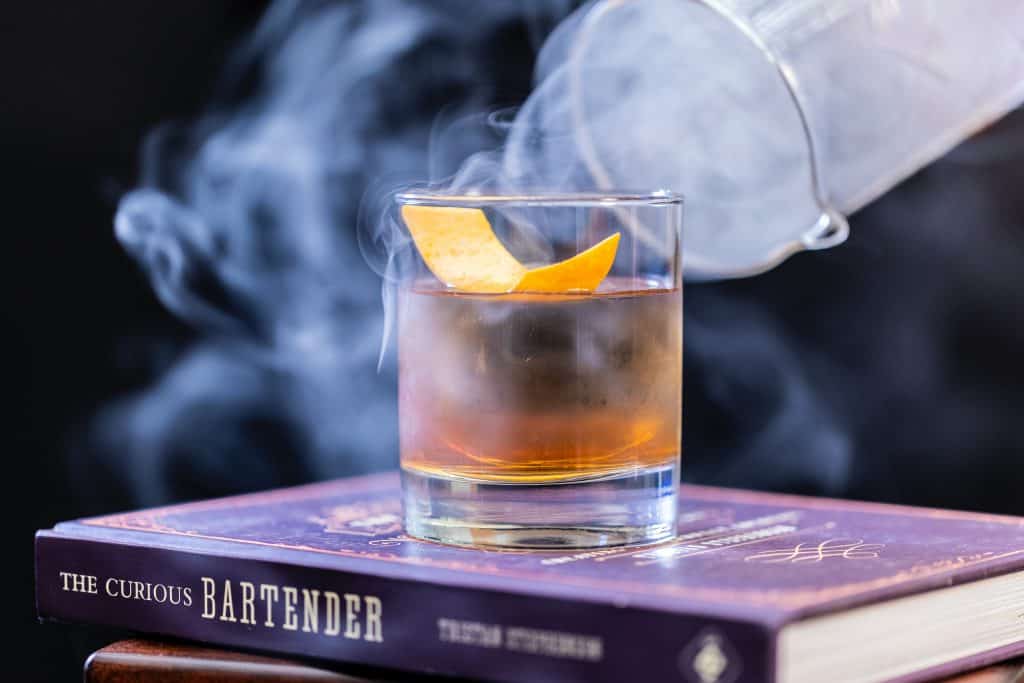
We know that opening bottles of gin past their prime won’t hurt you, but it will impact the flavor. Before you hastily pour a glass, serve it to friends or family and hope for the best, it’s probably worth just double-checking it’s still drinkable. There are a few ways to check:
- Check the color
First, pour a small amount into a glass and look at the color. Gin should be completely clear, so if it’s anything other than clear, with any tints or any small particles floating around, then it’s probably past its best. - Smell it
Gin has a pretty unique and distinctive smell; it’s fresh and piney from the juniper berries. If you struggle to smell the piney freshness or are struggling to smell anything at all, this is a good indicator that the taste has deteriorated.
You may even detect hints of acidity, like citrus, which is another sign it may not taste as nice anymore. - Taste it
Give it a taste – we know it won’t hurt you even if it has been open a long time. If the color and smell seem okay, then the chances are it’s fine.
However, to be sure, before you serve it to your unsuspecting friends, try a sip beforehand to make sure it still tastes as good as when you bought it!
Best Way To Store Gin
We all want to make sure our gin is fresh and tasty, ready for our evening drink, or enjoyed with family and friends. We also know that storing gin incorrectly can greatly impact the taste, and proper storage conditions can extend the shelf life.
Taking the time to think about storage is well worth it; it’ll retain the drink’s integrity and make sure it lasts as long as possible. Here are the best ways to store your gin:
In the Fridge or Freezer
Gin is a drink that is always best served cold; if the alcohol isn’t cold, then most bars will cool the glass down or add lots of ice. Gin won’t actually freeze due to the high alcohol content, making it perfect to be stored in the freezer or even in the fridge.
Keeping it cold will not only make it taste more delicious (if that’s even possible), it will stay fresher for longer as it cannot oxidize.
In a Cool Place
It’s not imperative to keep your gin in the fridge or freezer, so don’t panic if you don’t have space! It’s best in any room that doesn’t get too hot, like on the shelf in your pantry or liquor cabinet.
Keep It out Of the Sun
This one is fairly self-explanatory. The sun can damage the drink’s taste very quickly, so keep it outside of direct sunlight.
Decant Into Smaller Bottles
If you have consumed some of the gin then consider decanting gin into a smaller bottle. The more air there is inside the bottle, the quicker it will oxidize and deteriorate. What a great excuse to finish off that bottle lurking in the cupboard!
Final Thoughts
We now know exactly what the shelf life is for opened and unopened bottles of gin. We also know exactly what will happen to the taste if a bottle is left open for too long and we know how to properly store it.
Now, you hopefully won’t be so quick to throw it away the next time you come across a half-drunk bottle in the back of the cupboard!

